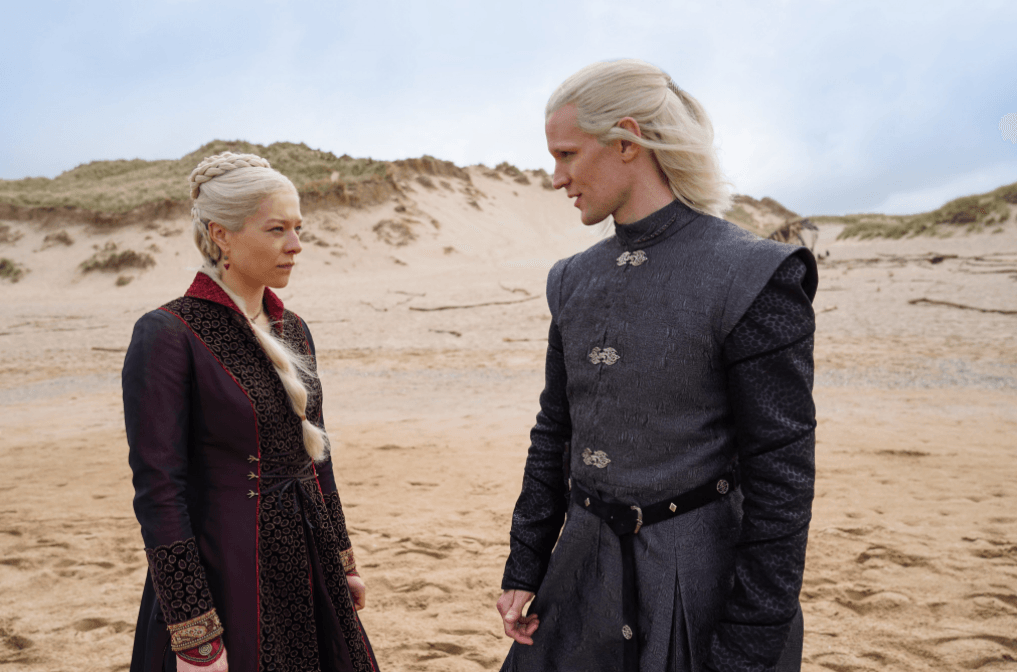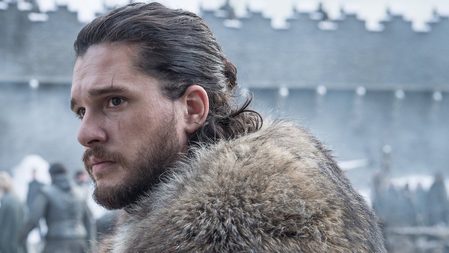SUMMARY
This is AI generated summarization, which may have errors. For context, always refer to the full article.

Spoilers ahead.
House of the Dragon season one focuses on the tragedy that comes with inevitability. The Dance of the Dragons, the purported Targaryen civil war that has been etched in history books by the time Game of Thrones arrives, hasn’t officially started. There are no gaudy battles between bannermen or mystic sorcerers, no White Walkers spelling out doom, and most definitely no King’s Landing set on fire just yet.
Instead, showrunners Ryan Condal and Miguel Sapochnick treat us to a season full of politicking, marriage pacts, and the dizzying headache that is male primogeniture – the right of succession as the first-born son. And in doing so, for most of the 10-episode runtime, they recapture the essence of what made the original series so compelling in its earlier parts. It sets itself apart simply by recognizing that family dinners, council meetings, and gruesome childbirths are just as, if not more, compelling than skirmishes with the undead.
After previously ending on two shortened seasons, mostly filled with extravagant setpieces and meaningless warfare, it feels so invigorating to see Westeros again during a time of peace. The resplendent hallways of the Red Keep, the lush and picturesque Weirwood tree, the regimental pavements of courtyards, and the exotic dragon pits all paint a new but somewhat familiar impression.
Set around 172 years before the first season of Thrones, House of the Dragon gains a voice of its own by breathing fire across all of its predecessor’s mistakes. Turned into ashes are the backward treatment of women, the inadequate representation in Westeros, and the gratuitous displays of sex and nudity. There is meaning in its avoidance of visual overindulgence, there is meaning in the Velaryons being cast with black actors, and there is meaning in taking the perspective of two female lead characters.
The series is, first and foremost, about the patriarchy and why its hegemony pervades all aspects of life due to the biggest ego boost of all: the Iron Throne. Save for Sansa, Cersei, and Daenerys, the perspective of male leads was given much more premium in the past, with Jon, Stannis, and Littlefinger all killing women for the so-called “good of the realm.”
Now, Rhaenyra Targaryen (played by Milly Alcock during her younger years and Emma D’arcy later on) and Alicent Hightower (played by Emily Carey and Olivia Cooke, respectively) are our protagonists — with a shoutout to the “Queen That Never Was,” Rhaenys Targaryen (Eve Best). And after being treated like insignificant chess pieces in a game designed for men, these queens take the stage and eventually retake power for themselves.
There are traitors in the fringes. Aspirants and conspirators are lurking in the shadows. But as these forces come feeding on a fractured house, one of Rhaenyra’s most burdensome enemies manifests through her unfair treatment as a woman, which ties into the betrayal of her own body in her conduct as heir to the throne.
D’Arcy, a non-binary actor (who just made “negroni sbagliato with prosecco in it” everyone’s favorite drink), beautifully translates the theme of being at odds with one’s gender and body. Moments like Rhaenyra involuntarily lactating during an important meeting, painstakingly walking after childbirth, and performing duties while pregnant are given heft and impact through their performance.
Despite still having the occasional Game of Thrones shock factor and sexual perversity, Dragon treats them with a sense of care and intimacy. Daemon Targaryen (played by the charismatic Matt Smith), the Rogue Prince, is a chaotic and restless figure, and while he is objectively a terrible person (he murdered his wife, groomed his niece, and committed tons of extrajudicial killings), Rhaenyra’s affection for him is shaped by her own awakening and acceptance of her desires – a far cry from the hostage marriage situations commonly depicted before.
And evidently, incest still plays a vital role in this Targaryen drama because bloodlines are politicized, and birthing heirs define the realm’s stability. At the heart of this conflict is King Viserys Targaryen (played by the immensely talented Paddy Considine), Rhaenyra’s father, who book readers will find as an unsympathetic king who drinks away all of his problems. In the television version, Considine gives his role layers upon layers of earnestness and soulfulness.
Crippled by the weight of ordering the death of his wife Aemma (Sian Brooke), Viserys becomes a tragic figure who is easily swayed by Machiavellian schemers like Otto Hightower (Rhys Ifan). Later in the series, his influence starts to wane as people cease paying attention to him, which is made worse by his deteriorating physical state.
But he has a decent heart, as demonstrated by the fact that he designated Rhaenyra heir as a loving gesture to his deceased wife. In what stands to be the pinnacle of House of the Dragon (episode eight, “The Lord of the Tides”), Considine evokes a physically haunting performance that is simultaneously poignant and pitiful.
Sadly, his ignorance and political frailness guaranteed the certainty of war. His brother, Daemon, could’ve been his heir, but his volatile personality closed the door for him. The prince has always been correct about his brother’s weaknesses, yet he never actually left his side despite being repeatedly spurned. Throughout the season, there’s an interesting fixation on the idea of communication (or lack thereof) and the need for approval from both Rhaenyra and Daemon, which they infrequently received from their king.
Other players like Viserys and Alicent’s children, more specifically Aemond (Ewan Mitchell), show glimpses of conciliation and friendship with Rhaenyra’s children (who turn out to be bastards) at a young age. But because of the patriarchy’s unwavering cruelty and their elders’ inflated ambitions, those fleeting moments of compromise are just that, fleeting.
Differentiating it further from its predecessor is its female directing and writing crew, most notably the directing and writing pair of Geeta Vasant Patel and Eileen Shim, as well as Clare Kilner and Sara Hess. Jim Clay and Jany Temime also churned out immaculate production sets and costume designs, wholeheartedly channeling dragon-inspired regalia onscreen.
Inevitability being a core concept in this season means that the following ones must deliver on the culminating war. My favorite moments so far have been when all the characters were in the same room, each finding discreet ways of gaining the upper hand. My fear is that subtlety might be abandoned moving forward in favor of spectacle and crowd-pleasing moments, essentially boxing characters into binaries and losing the “gray morality” that George R.R. Martin loved.
But as of now, House of the Dragon portends great things to come. The Act I and II set-up for the tragedy is over, the king is dead, and the Shakespearean play now moves to its climax. There’ll be more dragons for sure, but hopefully, it will still retain its heart. – Rappler.com
House of the Dragon is now streaming on HBO Go.
Add a comment
How does this make you feel?

There are no comments yet. Add your comment to start the conversation.